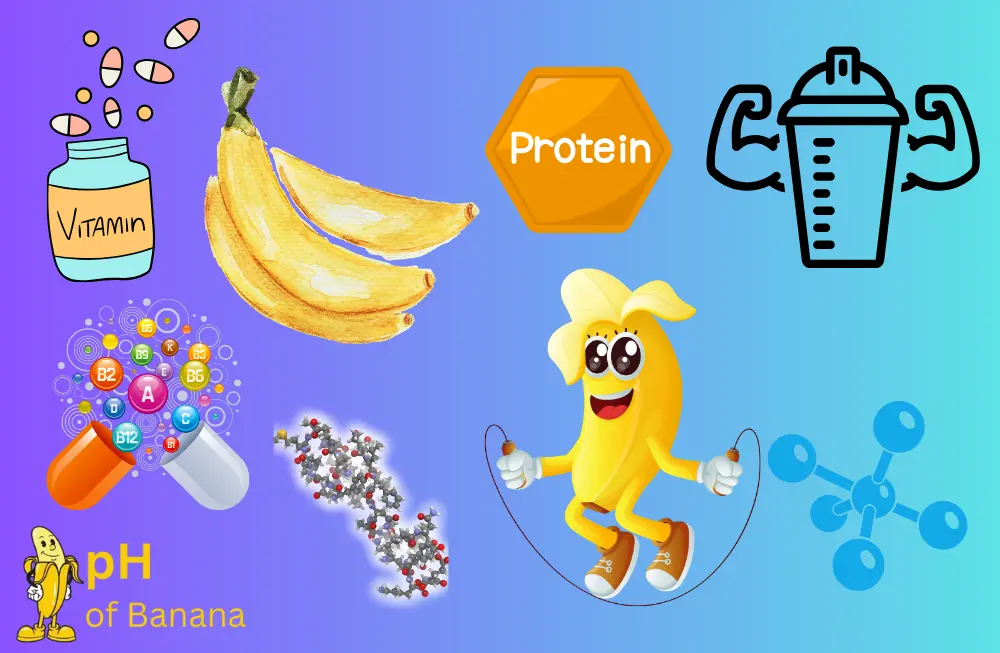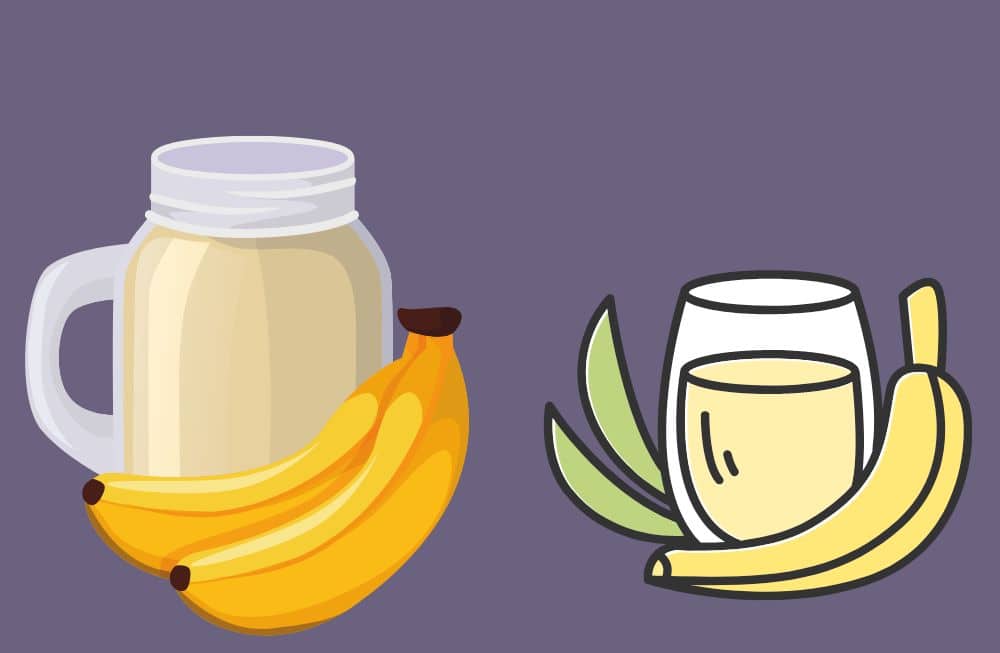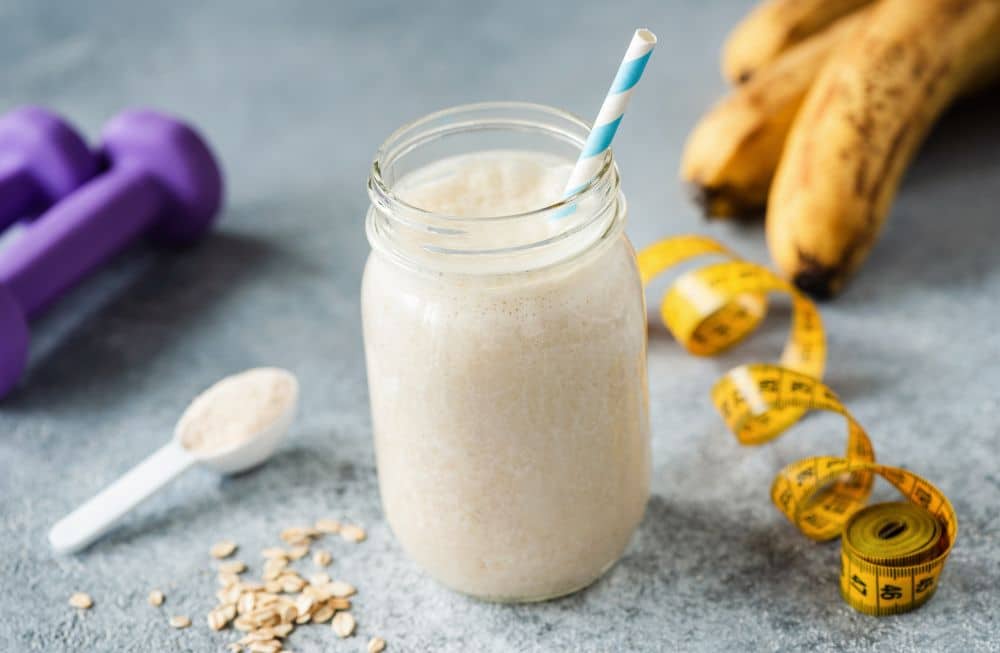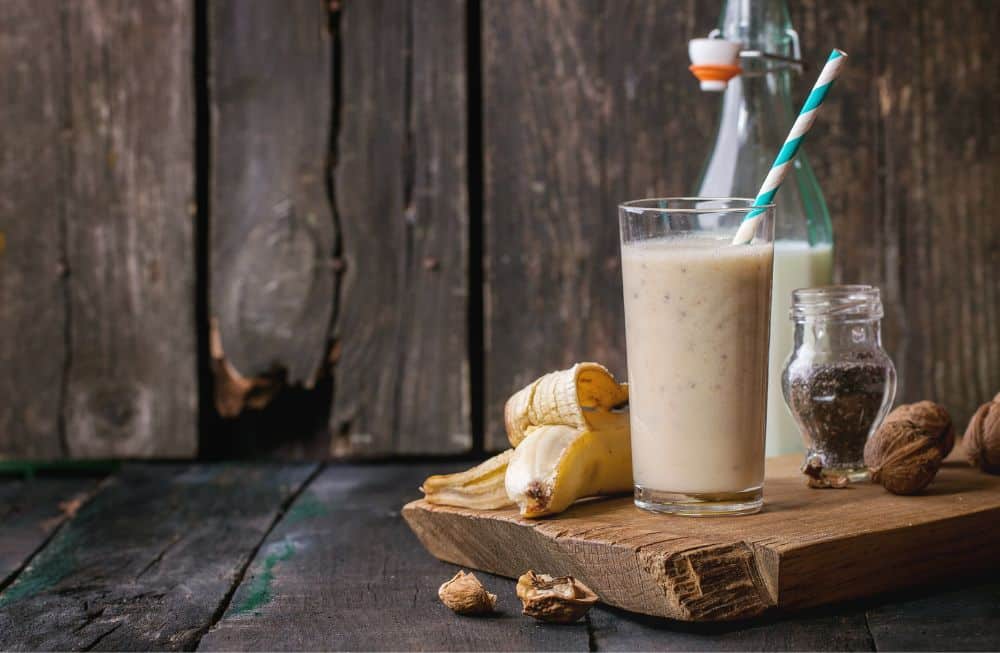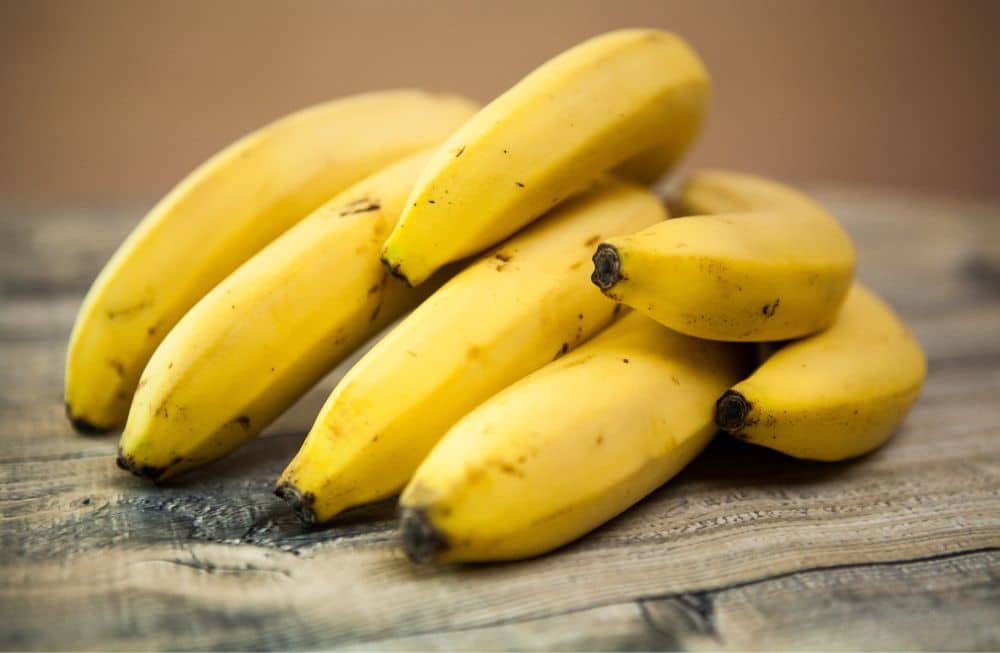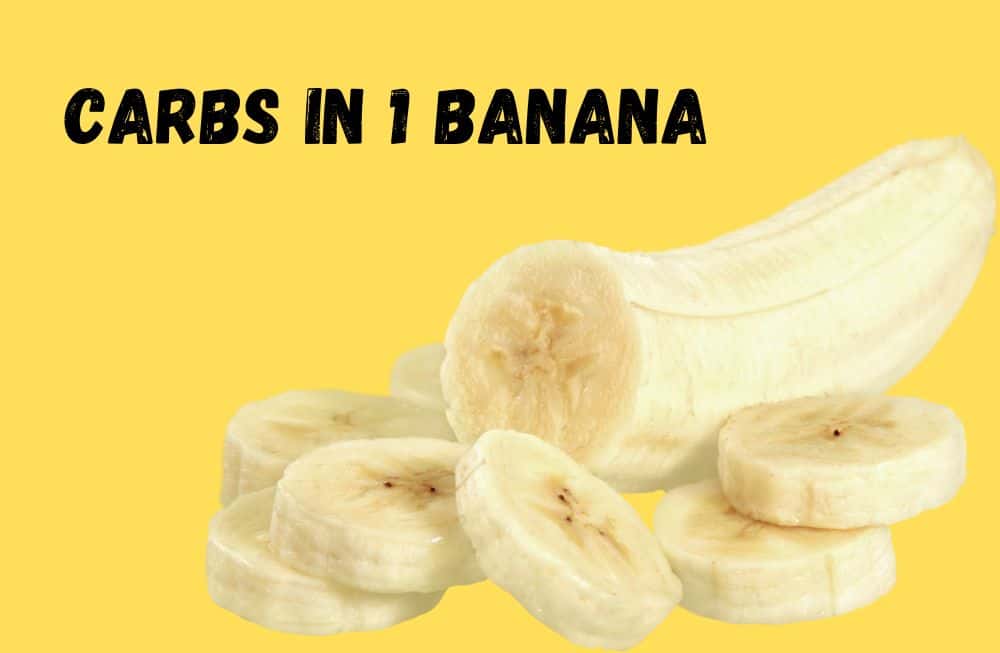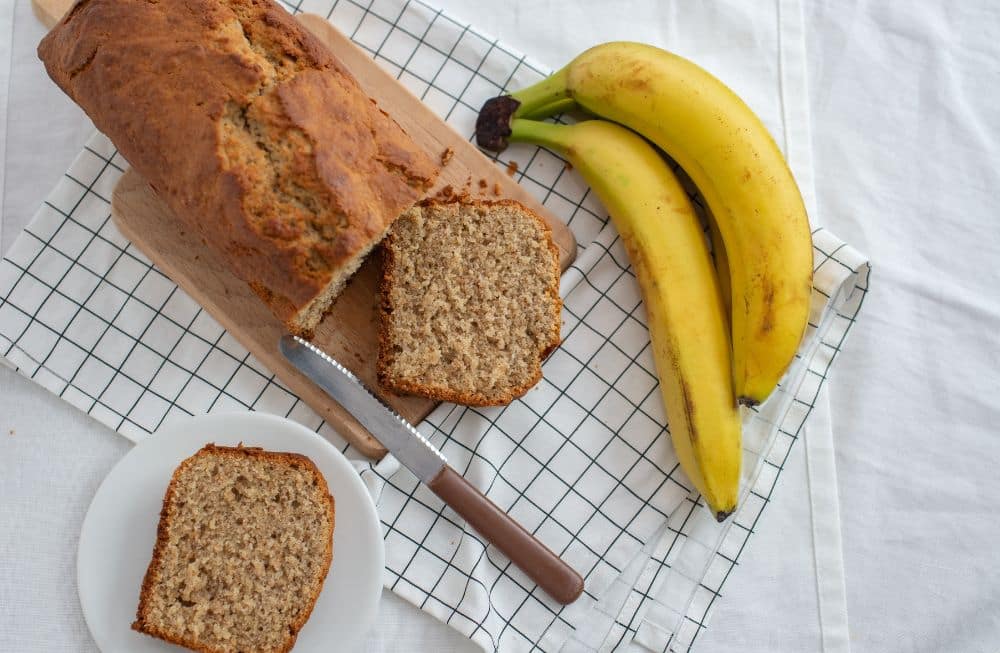We are all aware of how important protein is to keep a healthy weight and a fit body. But how much do bananas have protein, exactly?
In addition to being a handy snack, bananas provide a ton of protein. According to its size, a banana has varying amounts of protein, so if you’re keeping track of your diet’s nutritional data, pay attention to the size of the banana you’re consuming. Less than one gram to approximately two grams of protein may contain in your banana.
A banana may help you meet your daily protein requirements, which for most individuals range from 46 to 56 grams—but more than simply protein is available in this fruit though. When you take a look at some of the additional nutritional data about this fruit, it’s simple to see why so many individuals find it to be a healthy dietary option.
So, wanna figure out all the nutritional facts and benefits of bananas? Let’s keep reading, then!
Amount of Proteins In A Banana (By Size)
According to the United States Department of Agriculture (USDA), an average banana has 1.29 grams of protein. The following table provides the typical protein content for each of the standard sizes used by the USDA to classify bananas.
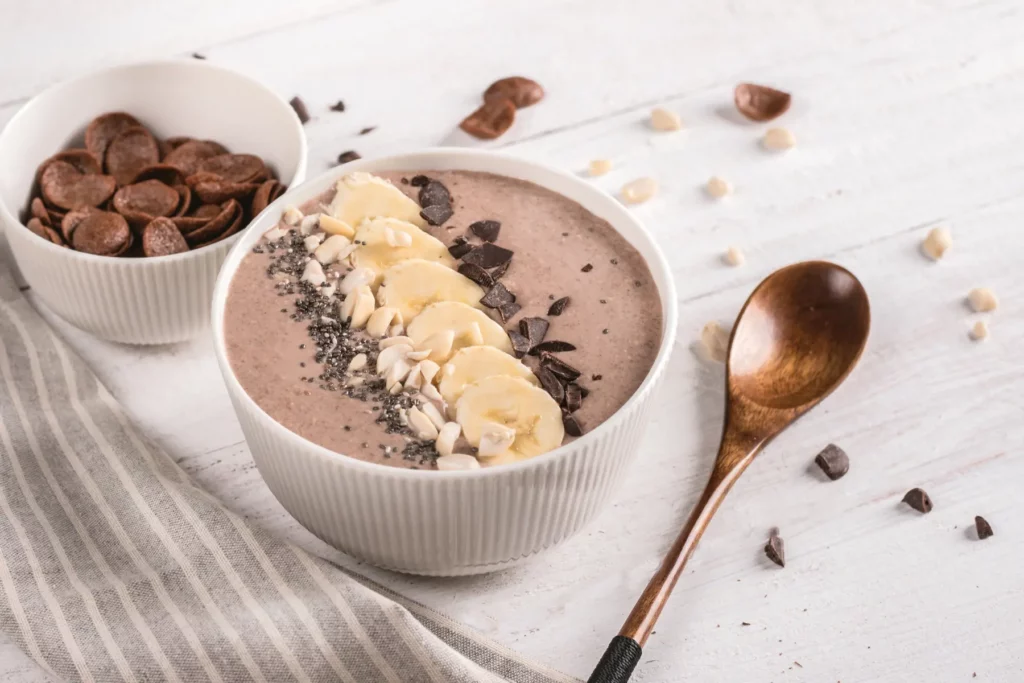
| Amount of Proteins In A Banana | ||
| Extra small | 5 inches long or less | 0.88 grams |
| Small | 5 – 7 inches long | 1.10 grams |
| Medium | 7 – 8 inches long | 1.29 grams |
| Large | 8 – 9 inches long | 1.48 grams |
| Extra large | 9 inches or longer | 1.66 grams |
A cup of mashed bananas has 2.45 grams of protein, whereas a cup of sliced bananas contains 1.64 grams of protein, according to the USDA. Despite having more carbs per serving than fresh bananas, banana chips nevertheless include 2.3 grams of protein.
More Nutritional Facts about Banana
A medium-sized banana (118g) has 105 calories, 27 grams of carbs, 14.4 grams of sugar, and 1.3 grams of protein. One serving of bananas provides 422 mg of potassium, making them a great source of the mineral. The USDA offers the following nutritional data.
| Nutritional Value of Banana | |
| Nutrient | Quantity – 118g |
| Calories | 105 |
| Protein | 1.9g |
| Total Carbs | 27g |
| Dietary Fiber | 3g |
| Total Sugars | 14g |
| Fat | 0.3g |
| Vitamin C | 9%of the DV |
| Vitamin B6 | 20% of the DV |
| Potassium | 12% of the DV |
Carbs
Per medium banana (measured as 7″ to 7 7/8″ long), there are 27g of carbs. Over 14 grams of naturally occurring sugar and 3 grams of fiber are included in these carbs. Bananas should be included in the two carbohydrate counts or two carbohydrate options for those with diabetes.
As bananas mature, part of the resistant starch (fiber) turns into sugar, so a yellow banana with brown spots contains more sugar and less fiber than a green banana of the same size. Bananas have a 48–54 glycemic index.
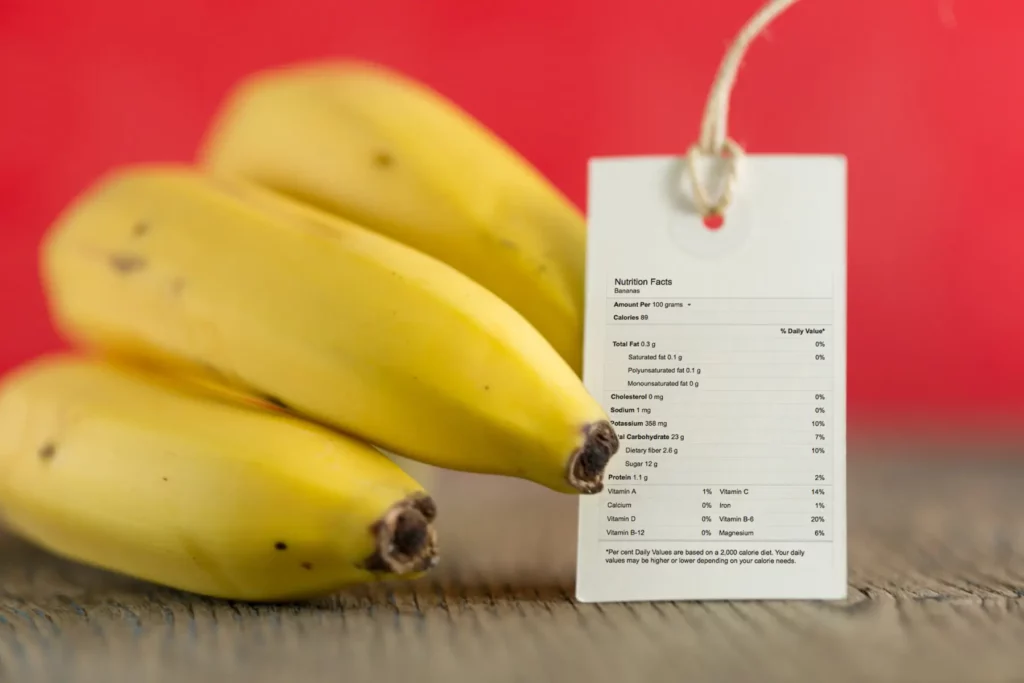
Fats
Less than 0.5 grams of fat per medium-sized banana, making bananas low in fat. Because bananas contain just trace levels of the fat-soluble vitamins A and K, eating them with fat may maximize their nutritious value. A two-tablespoon portion of peanut butter, which is often eaten with bananas, includes only 2.8 grams of saturated fat, 3.3 grams of polyunsaturated fat, and around 10 grams of monounsaturated fat.
Protein
How much protein is there in one banana? This is a subject that comes up rather often. A banana has around 1.3 grams of protein, which is the simple answer.
Protein is another nutrient in bananas. Protein, which is included in one banana in sufficient amounts, is a macronutrient that is crucial for numerous bodily processes, including tissue growth and repair, hormone production, and maintenance of healthy skin, bones, and muscles. Despite not being regarded as a food strong in protein, bananas do nonetheless provide a modest quantity of protein to the diet. For individuals trying to increase their protein intake, they are an excellent snack alternative.
Although the 1.3 grams of protein in 1 banana may not seem like much, it’s essential to remember that protein requirements might change depending on things like age, gender, and amount of physical activity. A sedentary adult, for instance, could only need 0.8 grams of protein per kilogram of body weight per day, but a physically active person might need up to 1.6 grams. 1.3 grams of protein are therefore obtained from 1 banana in this case.
Vitamins and Minerals
One medium-sized banana provides 422 mg of potassium, or roughly 9% of the daily amount recommended by the USDA, making bananas well-known for their high potassium level. Bananas also provide small amounts of vitamin C, folate, magnesium, and choline.
Calories
118g, or one medium-sized banana, has 105 calories. How does it stack up against other common fruits? A medium-sized gala apple has roughly 61 calories, a naval orange has 72.8 calories, and one cup (150g) of red, seedless grapes has 129 calories.
Health Benefits of Banana
In addition to fiber and protein, bananas also include a number of healthy vitamins and minerals, such as potassium, vitamin B6, vitamin C, and a number of antioxidants and phytonutrients. Here are 9 scientifically proven health benefits of bananas:
Improves Your Blood Sugar Levels
Bananas have a lot of soluble fiber. Soluble fiber transforms into a gel when it dissolves in liquid during digestion. This could also be a factor in a banana’s texture being similar to a sponge. Resistant starch, a form of fiber that your body can not digest, is another substance found in unripe (green) bananas.
By delaying stomach emptying, these two forms of fiber may work in tandem to normalize blood sugar levels after meals and control hunger. Accordingly, despite having more carbs than other fruits, bananas may not result in significant increases in blood sugar levels in those without diabetes.
However, eating a lot of bananas at once may cause blood sugar levels to spike too high in those with diabetes, so it’s recommended to limit your intake to one banana at a time.
Supports Your Digestive Health
There are numerous health advantages of dietary fiber, including better digestion, according to the National Library of Medicine.
Unripe bananas contain resistant starch, a prebiotic kind of fiber. Prebiotics are unable to be digested and wind up in the large intestine, where probiotics, the good bacteria in your stomach, eat them for nourishment.
Additionally, the fiber pectin, which is present in both ripe and unripe bananas, may aid in preventing constipation and softening stools. Even some test-tube research indicates that pectin may help prevent colon cancer. Although further human study is required to understand this potential advantage fully,
Can Aid in Weight Loss
The impact of bananas on weight reduction has not been specifically studied. However, bananas contain a number of qualities that can make them a healthy meal for weight reduction.
Despite having just over 100 calories on average per banana, bananas are calorie-efficient and satisfying. They also include a lot of dietary fiber and resistant starch, which may help you feel fuller for longer and eat fewer meals more often and in smaller portions.
If you want to eat unripe bananas, try preparing them the same way you would plantains.
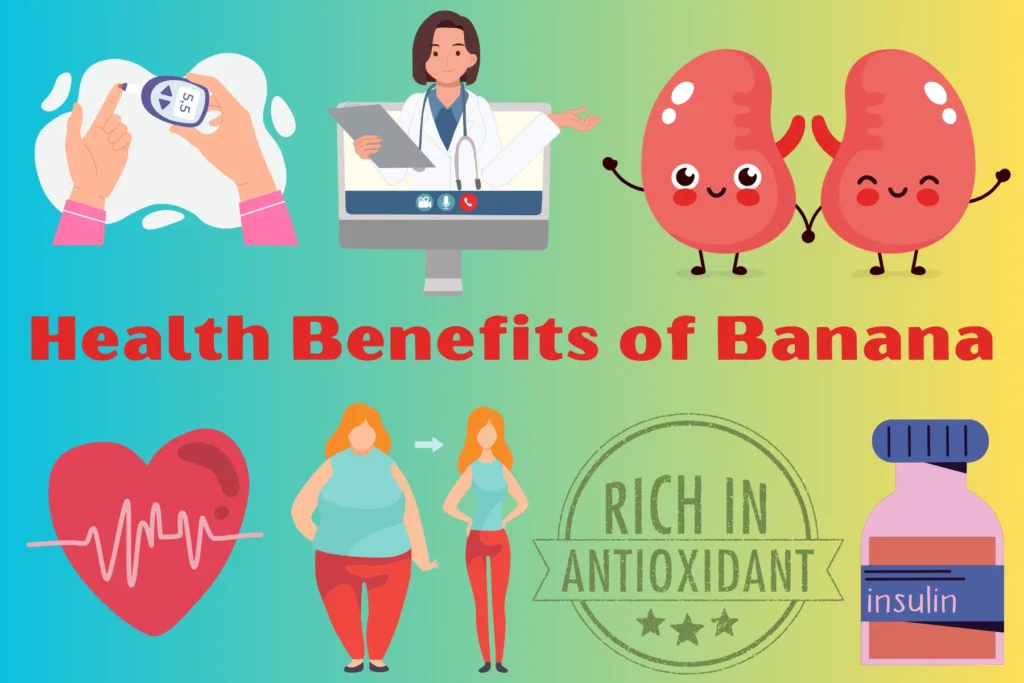
Keeps Your Heart Healthy
A mineral called potassium is essential for blood pressure control and heart health. Few people, in general, yet, consume enough potassium daily. With a medium banana containing 10% of the DV, bananas are a fantastic source of potassium.
Your blood pressure may be lowered with a potassium-rich diet. Reduces your risk of hypertension. Additionally, a 2017 research on mice indicates that potassium may reduce the incidence of heart disease by 27%.Verified Source.
Furthermore, bananas provide 8% of the Daily Value (DV) of magnesium, another crucial element for heart health.
Hypomagnesemia, a magnesium deficit, may raise blood pressure, increase triglyceride levels, and increase the risk of heart disease. Therefore, it’s essential to get enough of this mineral via your food or through supplements.
Banana is Full of Antioxidants
Bananas are only one example of how fruits and vegetables are great providers of dietary antioxidants. They include a variety of strong antioxidants, including flavonoids and amines. These antioxidants have been associated with a number of health advantages, including a decreased risk of heart disease and macular degeneration.
Antioxidants aid in preventing the oxidative harm that free radicals do to your cells. Free radicals may accumulate over time if you don’t take enough antioxidants and injure your body if their levels get to a certain point.
Allows You to Feel Fuller
By giving your digestive system more volume and delaying digestion, the soluble fiber in bananas may help you stay full. Bananas also have a low-calorie count compared to their size.
Bananas are a more full snack than certain alternatives, such as processed or sugary packaged snacks, due to their low calorie and high fiber content when combined.
Although protein is a satisfying macronutrient, bananas are deficient in it. You may mix a banana into a protein smoothie or eat sliced bananas with a protein-rich dish like Greek yogurt as a snack to help you feel less hungry.
Can Enhance Your Insulin Sensitivity When Unripe
Type 2 diabetes and other chronic illnesses are significantly influenced by insulin resistance. Consuming resistant starches on a daily basis may enhance insulin sensitivity, according to studies. Making your body more receptive to the hormone insulin, which controls blood sugar.
But additional analysis is needed to determine if the resistant starch in bananas influences insulin sensitivity.
Keeps Your Kidney Healthy
Potassium is essential for normal blood pressure and proper kidney function. Bananas are an excellent nutritional supply of potassium, which may be particularly good for your kidney health.
A study from 2019 involving more than 5,000 individuals with early-stage chronic kidney disease found a correlation between potassium and lower blood pressure and a slower course of the condition.
However, certain individuals who are on dialysis or who have advanced renal disease must limit their potassium intake. Before increasing your potassium consumption, if you fit into one of these groups, see a healthcare provider.
Support Exercise Recovery
The ideal meal for athletes is sometimes said to be bananas. This is partly because they include carbohydrates that are simple to digest, as well as electrolytes in the form of potassium and magnesium.
During strenuous activity, electrolytes are lost via perspiration. Exercise-related muscular cramps and discomfort may be lessened by rehydrating your body with potassium and magnesium after perspiring.
Bananas have not been specifically studied for their impact on exercise performance, cramping, or recuperation. However, bananas are a fantastic source of nourishment before, during, and after exercise.
How to Add Bananas to Your Diet
You can enjoy bananas in many different ways. Although a fresh banana is a terrific snack, there are other ways to include bananas in your diet. Opt for one of these:
- Put some sliced bananas on top of your morning cereal.
- If you need a portable snack, think about banana chips.
- A cool summer treat is frozen bananas.
- For your next special event, prepare a banana dessert.
- If you’re looking for a unique dessert dish, try baking bananas.
- For a delicious flavor and texture as well as additional protein, add a banana to your smoothie.

Not only are bananas simple to include in your diet, but they are also tasty, creamy, and sweet. So the next time you’re in need of a fast snack, go for a banana. It’s a delightful, nutritious snack that omnivores, vegetarians, vegans, and adherents of the raw food diet can all eat. A banana is a food that may provide you with more sustained energy and significant health advantages due to the protein it contains.
FAQs
Can I eat bananas every day?
Yes, you can eat bananas every day. Fruits like bananas are nutritious, tasty, and of great use. They include a wealth of nutrients that may aid digestion and gut health, prevent constipation, and heal after intense physical activity.
Having one banana each day will provide you with the following:
1. Vitamin C at 12% of the DV
2. potassium at 10% of the DV
3. Magnesium at 8% of DV
One banana each day is a nutritious choice. However, eating too many bananas may result in excessive sugar consumption, which might cause high blood pressure since the majority of the calories in bananas originate from carbohydrates.
What is the best time to eat bananas?
You can eat however you want. However, because they are nutritious, healthy, and simple to eat, bananas are often consumed for breakfast. But due to their high glucose content, bananas may raise blood sugar levels in those who have type 2 diabetes. It could be better to have a banana with a meal that is heavy in protein and fat, such as Greek yogurt.
Conclusion
A common fruit with a variety of possible health advantages is the banana. Because they are high in fiber, antioxidants, and protein, they could help with digestion and heart health. Additionally, they are satisfying, low in calories, and rich in nutrients, all of which may aid in weight reduction. You may satisfy your sweet craving and be healthy by eating both ripe (yellow) and unripe (green) bananas.
We hope this article answers your most common question, do bananas have protein?

